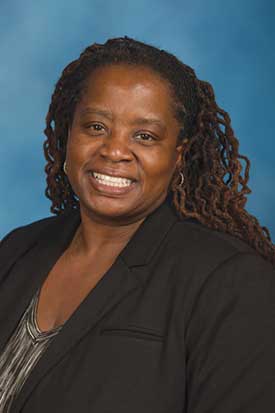
As a teenager, Dr. Nina Nabors read a book that changed her life. This Bridge Called My Back, a classic anthology of multicultural feminism, gave words to the feelings Nabors had experienced as a young African-American woman growing up in the mid-20th century. The volume would provide the inspiration and foundation for her 20-year career as a therapist and researcher. It would also set her on a path toward her career at Walden, which began in 2001. In 2016, she earned a Presidential Award for Faculty Excellence. Here, the faculty member and program director for academic operations and residency shares her unique lens on current political events and why Walden is the perfect place for her to advance her expertise.
What is a multicultural feminist therapist?
Multicultural feminist therapists believe many of the challenges our clients experience can be understood by both the environment in which they live and their individual makeup. Feminist theory focuses on structural factors, societal expectations and stereotypes, and how the intersections of identity—one’s race, ethnicity, and gender, among others—are influenced by the experiences the person has. All those things influence who we are and how we behave. Feminist therapists are also very aware of the role of power in therapeutic relationships. We try to decrease the power differential between the therapist and client, believing that the client is the expert in their own life.
What’s your take on the social movements that have followed the 2016 U.S. presidential election?
It feels like more of the country is awake to the experiences that marginalized groups have been facing for decades—the Women’s March on Washington, for example. To see the intersection of all walks of life, ages, races, ethnicities, genders, sexual orientations, religions—I thought, “This is the kind of movement we’ve been looking for.” It has been heartening. Throughout most of American history, people from marginalized groups, including people of color, immigrants, religious minorities, and the LGBTQ community, have lived at a disadvantage but were told repeatedly that their experiences were not valid. Reaction to the Black Lives Matter movement, Women’s March, and other protests post-election suggests that the country is now awake. People from privileged backgrounds have now witnessed for themselves the social injustices that permeate our society.
How are you counseling others during this time of societal change?
I’ve been telling people to take their social media in small doses. It can be incredibly overwhelming—the things that are flung across social networks. I also encourage people to focus on self-care, whether that’s something like meditation, socializing, or journaling. Some people feel better when they focus not on themselves as individuals but on activism: marching, making phone calls, or making donations to organizations at risk. These actions can be helpful when you’re feeling powerless.
Why has Walden been the right platform for your work?
When I first heard about Walden, I didn’t know much about distance education. But when I got here and saw how diverse the student body was, it was a completely different experience from my previous faculty positions. Walden allows me to explore my interests around multicultural feminism more in depth. The students I’ve met, the dissertations I’ve mentored—it’s the perfect university for me.



